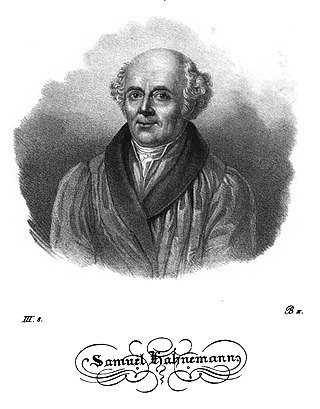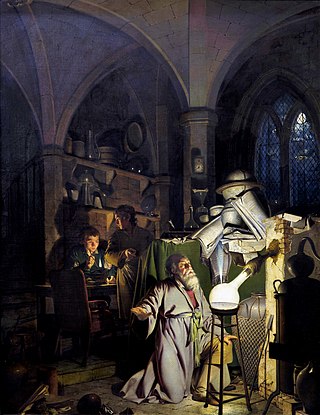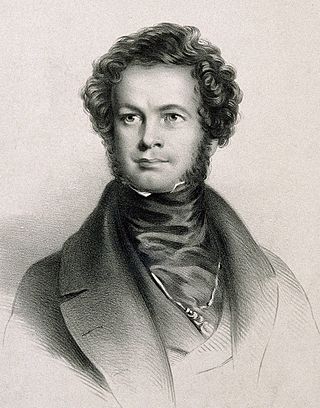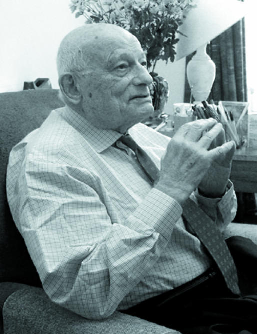Alternative medicine is any practice that aims to achieve the healing effects of medicine despite lacking biological plausibility, testability, repeatability or evidence of effectiveness. Unlike modern medicine, which employs the scientific method to test plausible therapies by way of responsible and ethical clinical trials, producing repeatable evidence of either effect or of no effect, alternative therapies reside outside of medical science and do not originate from using the scientific method, but instead rely on testimonials, anecdotes, religion, tradition, superstition, belief in supernatural "energies", pseudoscience, errors in reasoning, propaganda, fraud, or other unscientific sources. Frequently used terms for relevant practices are New Age medicine, pseudo-medicine, unorthodox medicine, holistic medicine, fringe medicine, and unconventional medicine, with little distinction from quackery.

Homeopathy or homoeopathy is a pseudoscientific system of alternative medicine. It was conceived in 1796 by the German physician Samuel Hahnemann. Its practitioners, called homeopaths, believe that a substance that causes symptoms of a disease in healthy people can cure similar symptoms in sick people; this doctrine is called similia similibus curentur, or "like cures like". Homeopathic preparations are termed remedies and are made using homeopathic dilution. In this process, the selected substance is repeatedly diluted until the final product is chemically indistinguishable from the diluent. Often not even a single molecule of the original substance can be expected to remain in the product. Between each dilution homeopaths may hit and/or shake the product, claiming this makes the diluent "remember" the original substance after its removal. Practitioners claim that such preparations, upon oral intake, can treat or cure disease.

Naturopathy, or naturopathic medicine, is a form of alternative medicine. A wide array of pseudoscientific practices branded as "natural", "non-invasive", or promoting "self-healing" are employed by its practitioners, who are known as naturopaths. Difficult to generalize, these treatments range from the thoroughly discredited, like homeopathy, to the widely-accepted, like certain forms of psychotherapy. The ideology and methods of naturopathy are based on vitalism and folk medicine rather than evidence-based medicine, although practitioners may use techniques supported by evidence. The ethics of naturopathy have been called into question by medical professionals and its practice has been characterized as quackery.

Christian Friedrich Samuel Hahnemann was a German physician, best known for creating the pseudoscientific system of alternative medicine called homeopathy.

James Tyler Kent (1849–1916) was an American physician best remembered as a forefather of modern homeopathy. In 1897 Kent published a massive guidebook on human physical and mental disease symptoms and their associated homeopathic preparations entitled Repertory of the Homeopathic Materia Medica, which has been translated into a number of languages. It has been the blueprint to many modern repertories used throughout the world and even remains in use by some homeopathic practitioners today.

Quackery, often synonymous with health fraud, is the promotion of fraudulent or ignorant medical practices. A quack is a "fraudulent or ignorant pretender to medical skill" or "a person who pretends, professionally or publicly, to have skill, knowledge, qualification or credentials they do not possess; a charlatan or snake oil salesman". The term quack is a clipped form of the archaic term quacksalver, from Dutch: kwakzalver a "hawker of salve". In the Middle Ages the term quack meant "shouting". The quacksalvers sold their wares at markets by shouting to gain attention.

The history of pseudoscience is the study of pseudoscientific theories over time. A pseudoscience is a set of ideas that presents itself as science, while it does not meet the criteria to properly be called such.

The Faculty of Homeopathy was formed in 1944 from the British Homeopathic Society. It was incorporated by the Faculty of Homeopathy Act 1950, which confers an educational function on the Faculty. The Faculty promotes the development of homeopathy.

Edzard Ernst is a retired British-German academic physician and researcher specializing in the study of complementary and alternative medicine. He was Professor of Complementary Medicine at the University of Exeter, the world's first such academic position in complementary and alternative medicine.
In 1998, the Swiss government began a comprehensive Program for Evaluating Complementary Medicine to study the role and effectiveness of complementary medicine, which was playing an ever-increasing role in the Swiss medical system.

Steven Paul Novella is an American clinical neurologist and associate professor at Yale University School of Medicine. Novella is best known for his involvement in the skeptical movement as a host of The Skeptics' Guide to the Universe podcast and as the president of the New England Skeptical Society. He is a fellow of the Committee for Skeptical Inquiry (CSI).
George Vithoulkas is a Greek teacher and practitioner of homeopathy.
Michael Baum, Professor Emeritus of Surgery and visiting Professor of Medical Humanities in University College London (UCL), is a British surgical oncologist who specialises in breast cancer treatment. He is also known for his contributions to the evaluation and support of patient quality of life. He has been Professor of Surgery in King's College London, the Royal Marsden Hospital and UCL. He is a notable critic of alternative medicine.

Homeopathy is fairly common in some countries while being uncommon in others. In some countries, there are no specific legal regulations concerning the use of homeopathy, while in others, licenses or degrees in conventional medicine from accredited universities are required.

Peter Antony Goodwin Fisher, FRCP was an English physician who served as physician to Queen Elizabeth II for 17 years.

Trick or Treatment? Alternative Medicine on Trial is a 2008 book by Simon Singh and Edzard Ernst. The book evaluates the scientific evidence for alternative medicines such as acupuncture, homeopathy, herbal medicine, and chiropractic, and briefly covers 36 other treatments. It finds that the scientific evidence for these alternative treatments is generally lacking. The authors concluded that homeopathy is merely a placebo.

The Royal London Hospital for Integrated Medicine is a specialist alternative medicine hospital located in London, England and a part of University College London Hospitals NHS Foundation Trust. It is the largest public sector provider of complementary medicine in Europe. It is based in the Bloomsbury area of Central London, adjacent to Great Ormond Street Hospital.

Frederic Hervey Foster Quin was the first homeopathic physician in England.
George Lewith was a professor at the University of Southampton researching alternative medicine and a practitioner of complementary medicine. He was a prominent and sometimes controversial advocate of complementary medicine in the UK.

Eric Kurt Ledermann M.R.C.S., L.R.C.P. was a German psychiatrist, homeopath, naturopath and philosopher.














